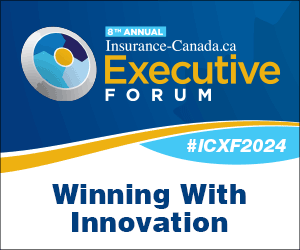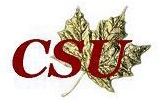Insurance decision-making has always been a vibrant mix of data / facts and personal experience / intuition. Question: Will the rise of powerful data analytic and inferential tools tilt the balance permanently?
Scientific Management keeps getting more scientific
Since scientific management principles were brought forward in the early part of the 20th century, there has been a push-pull between practices demanding data-driven management and a “Muddling Through” approach, based on informed instinct and relationships.
Scientific Management was developed by Frederick Taylor in the first decade of the 20th century. Simply put, “If you can’t measure it, you can’t control it.”
Management consultants have driven this principle deep into operations, and higher into strategic planning (“If you don’t set measurable targets, you can’t define success”).
Data support the scientific techniques. Cited in SearchBusinessAnalytics, a recent MIT Study led by Andrew McAfee found that “organizations driven most by data-based decision-making had 4% higher productivity rates and 6% higher profits.”
So what’s the alternative?
In 1959, Charles Lindblom authored an article, “The Science of Muddling Through,” that has provided a checkpoint for the scientific approach.
The Taylor Scientific approach assumes that decision makers can analyze all scenarios and use data to drive the correct answer. This is referred to as the ‘root’ approach (starting from the core element and working out all the alternative paths).
What could go wrong? The Business Case for Muddling.
Lindblom suggests that this approach is difficult or impossible in complex situations. Successful senior managers use the ‘branch’ approach starts from a known environment and continues to make incremental improvements, negotiating trade offs with other key actors. Lindblom calls this ‘Muddling Though’.
Is this still valid? Fifty years after the publication of the article, John Kay writing in the Financial Times, provided a case study of a major US conglomerate which relied heavily on the scientific method. This resulted in missing critical, unknowable information which led to substantial, negative changes in fortune.
This wasn’t Kay’s example, but think Lehman Brothers.
And it sounds like insurance …
I have not done any scientific studies, but have participated in senior management planning sessions in a number of insurance organizations. Virtually every one had heavy components of the scientific approach, driven by key metrics.
Notably, the same number had some degree of Muddling embedded. Invariably, there are elements that are off the data radar screens which are constraints, enablers, or both.
These are not just ‘nice to haves.’ We ignore the wisdom of the underwriter, claims manager, and risk manager at our great peril.
Will new technology tools change this?
I think the short answer is “Not fundamentally.”
This blog joins many other voices in the community celebrating increased science and rigor in the acquisition and use of data. And tools such as Cognitive Computing and Intelligent Machines will provide significant value to insurers and distributors.
But they will be necessary, but not sufficient.
As this blog noted recently, the Accenture Vision 2015 report suggests technology will change and disrupt insurance, to the point where machines will carry a bulk of the work of the organization, However, the authors are careful to note that key humans will be critical in acting as teachers for the machines. Likely, analog items will take precedence on the training schedule.
What do you think?
As we find our way into the world of intelligent machines, and try to become increasingly digital, will we find ourselves building the perfect machine? Or, will the human elements remain a permanent part of the fabric?
Drop a note below.
(The 2015 Insurance-Canada.ca Executive Forum will feature several Cognitive Computing and Intelligent Machine sessions. )



